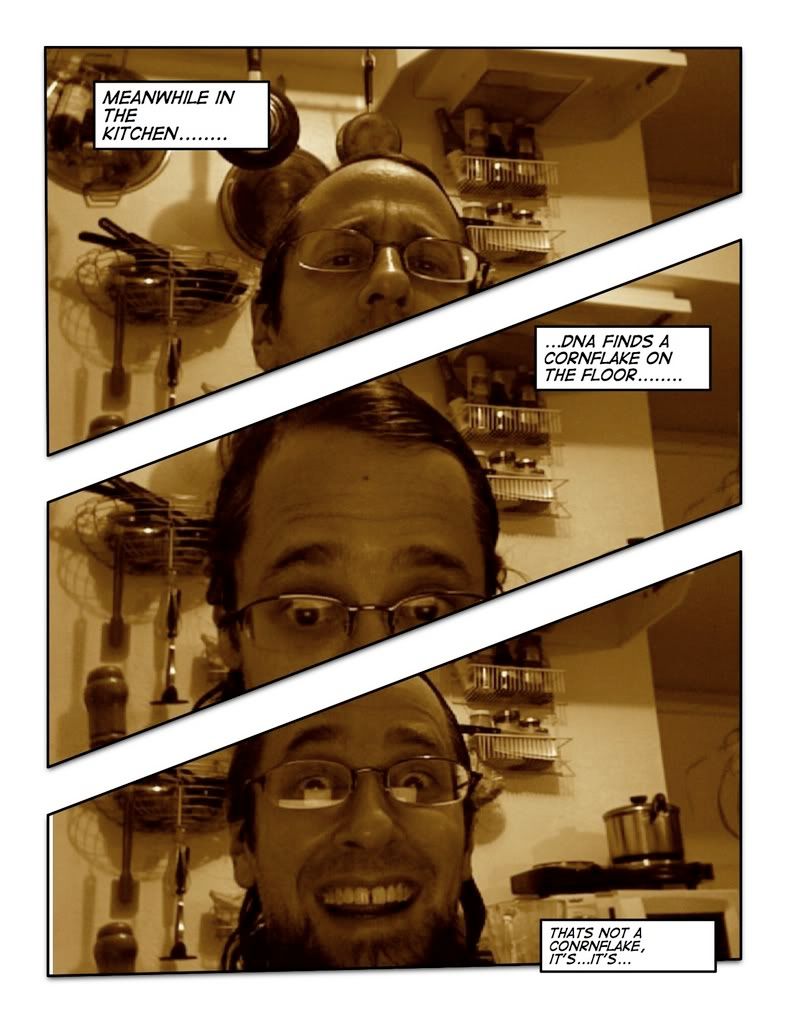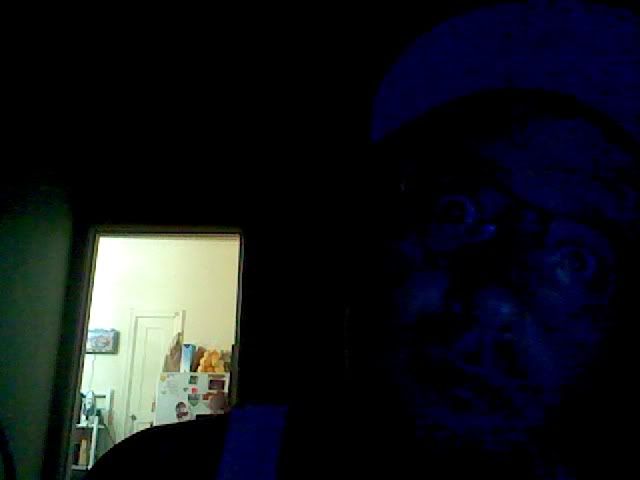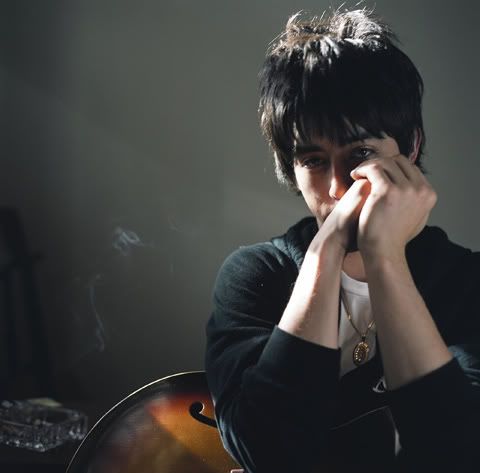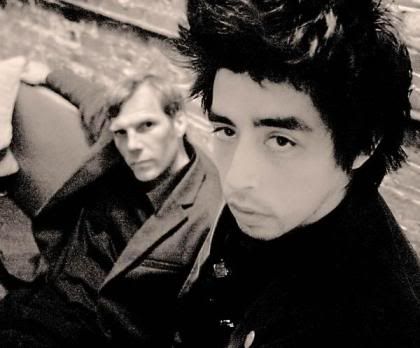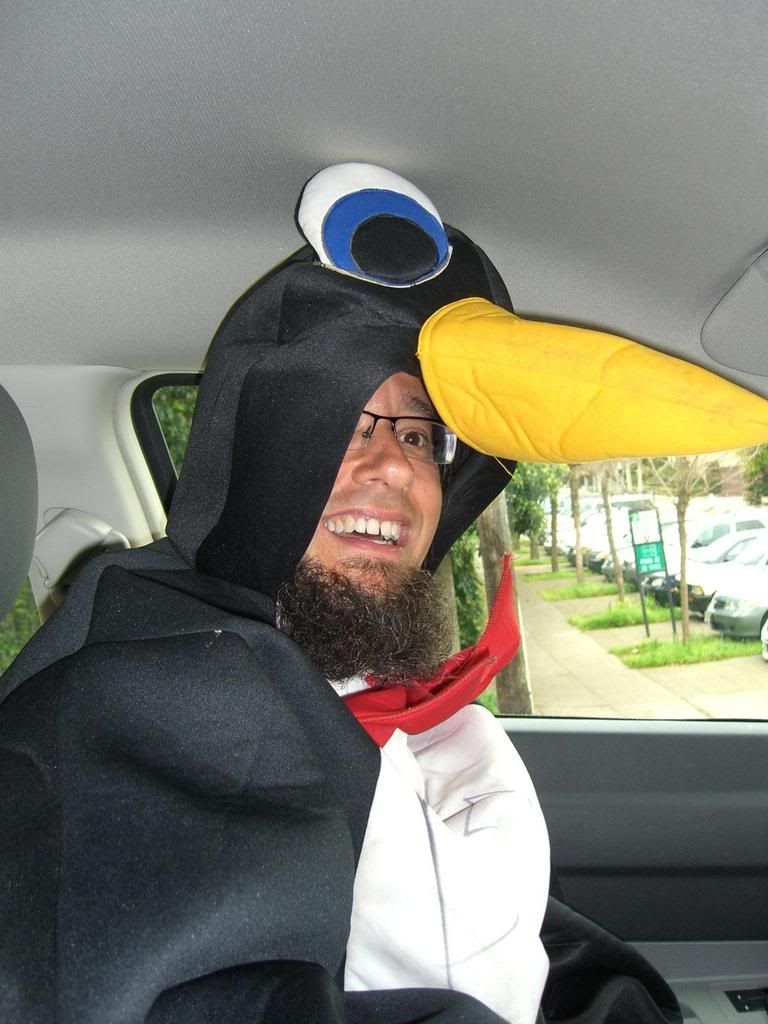
Over the years I have done my fair share of interviews. Sometimes it was a job assignment that I carried out as professionally as I could muster. Usually, it was because I had somehow convinced somebody I admired to talk to me. 99% of the interviews were published somewhere or another, but, this one, fell through the cracks until it landed in my lap this morning.
I love the weird side of life and for years had read books from Disinfo.com about global conspiracies, alien abductions, psychedelic research and Suicide Girls. Founder Richard Metzger and I were on for an interview that took a few days to iron out for my publication, HUMP. There were missed calls, interruptions, dead cell phones and then the kicker was that this interview went unprinted for over 5 years.
The interview is thick. Turns out Metzger’s favorite later-day Leary story was one I had written in an Australian magazine called REVelation. His empire was looming, my novel was about to be released—but the landscape was bleak. Bush was in office and hope seemed far off.
In the end we theorized that a charismatic candidate might yet emerge from the shadows. In my novel I had imagined a skinny/community activist/addicted to cigs/messiahish/b-ball playing candidate that people call a socialist and communist. Real life gave us Obama.
Here then is the tale:
Richard Metzger: Hello?
DNA: Hey, I'm looking for Richard.
R: Speaking.
D: This is DNA with Hump Magazine.
R: Hey, man. How are you?
D: I'm doing pretty good. How are you doing?
R: I'm great.
D: Is now a good time?
R: Yeah, sure thing.
D: Cool. What's going on in New York City right now?
R: You're calling Los Angeles.
D: Oh, you're in L.A.
R: Yeah.
D: Alright, well, oh, right, that's good. It is earlier than it would be if I called you in
New York. [chuckles]. That's good. I got lost in your website for the last hour or so. It's quite a ride. How often do you personally post and stuff on your website, or does it kind of run by itself?
R: Me, next to never. Every once in a while I'll forward something on to Alex Burns -- who's the site's editor -- and he'll put it up. I actually don't do it that often myself. I haven't, really, since the late nineties.
D: What do you got your hands busy in right now then?
R: Well, just -- running the company, in general. We publish a book a month, and
usually a DVD a month -- so that's pretty big.
D: Totally. And I saw something about a feature film?
R: Yeah, I don't know why -- where did it say that because . . .
D: On the information page.
R: Oh, really. At one point we sort of did but, no, that's sort of fallen by the wayside.
D: Oh, really? Why is that?
R: It's not worth discussing.
D: Well, it would seem, though, that with your hands on all the information, is it just
about getting a good screenplay together?
R: No, it was about the property we were going to buy.
D: Was it the Da Vinci Code?
R: No, it was the Invisibles.
D: Oh, right. So you moved on to the hardcore business side. Was that always your main pursuit -- working the business side of things?
R: No, not really. I was the TV producer for a long time, and then the dot com thing came around, and I was able to take one of my favorite TV ideas and make it into a dot com thing and have corporate funding -- TCI at the time -- now known as AT&T Broadband -- but it was TCI's money -- their stockholders' money, rather -- that was behind it, behind me being able to realize some kind of underground thing on a higher budget than it normally would have received in any time in the past. The dot com era made that possible. I went from being someone who was essentially a producer and a director -- on the creative side -- to being someone who was doing all that but also had to deal with a business on a day-to-day basis, and . . .
D: Hey, Richard. My phone's about to die. I'm going to call you right back.
R: Okay.
D: Fuck. Piece of shit fuckin' phone! Fuck you, you stupid cocksucker!
[recording interference].
[dial tone].
[number being dialed].
[phone ringing].
R: Hello?
D: Hey, this is DNA with Hump Magazine.
R: Hey.
D: Good morning, how ya doing?
R: Good morning.
D: How ya doing?
R: Doing good. Can we start this in about 20 minutes?
D: Yeah, you want me to give you a call you back in 20?
R: Yeah, that would be great.
D: Hey, no problem, dude.
R: [unintelligible].
D: Okay, bye.
R: Okay.
[recording interference].
[dial tone].
[recording interference].
[phone ringing].
R: Hello?
D: Hey, this is DNA with Hump Magazine.
R: Hey, there, how are you?
D: Good. How are you today?
R: I'm great.
D: Sweet. Hopefully the phone won't die today. Sorry about that yesterday.
R: No problem.
D: I spent a lot of time on your website over the last couple of days. I was just wondering, as a starting point maybe, where -- did you always have kind of a deep fascination with the kind of news that you weren't getting any other place? How did the initial idea to start the site come up? What was your passion to get it going?
R: Well, yes, it's a two part answer. Yeah, I've always been interested in weird, unusual things. When I was kid I was a real bookworm, so I used to read a lot of counter culture books and stuff like that. This was like in the late seventies, when I would have been coming of age. That was the time when there was a lot of that kind of stuff around, you know, and mainstream publishers that published that kind of stuff 'cause that was just what was in the air then and that's what they did. So there was a lot of that kind of stuff turning up in like used book stores and stuff when I was . . .
D: Was it like . . .
R: You know, something like Naked Lunch or books on underground film -- like, let's say a book about, like, you know, [underground film in New York] -- I remember being a film that I loved -- books by people like [Parker Tyler].
D: [Carlos Castaneda]?
R: I wasn't really into that, but, yeah, that kind of thing. I mean, I read those books. They didn't really impress me that much, but I would read things like Leary's books or [Burrow]'s, and I was especially interested in [Alistair Crowley]. I guess those were the three main things that I was really interested in.
D: What about, like, Philip K. Dick?
R: I wasn't really a Philip K. Dick person. I liked him -- Lenny Bruce was more my speed. My sort of pantheon when I was a kid were Leary, Lenny Bruce, and William Burrows and Crowley. . .
D: [overlap]. That's a pretty good trinity, right there.
R: Yeah. Then, to answer your question about the site, I was working, for a little while, for Jerry Brown's presidential campaign. I guess it would have been in 1981, so it was the '82 election when Clinton won -- '92, rather. I devoted my life, for about six weeks, to Jerry Brown in New York state, so I was at a lot of meetings, and speeches, and public events, and so forth, and I'd look at the way that they -- I'd buy all the newspapers the day after something seemed particularly good to me. It's actually worth reminding you, or whoever's reading this, that there was a short period of time where he was beating Clinton in the primaries and from a surprise upset in Michigan, and another one in Connecticut. So New York was next. So Jerry Brown was actually looking -- Whoa, Whoa, what's going on here? Could this fire brand maverick candidate actually -- well, you know, how far could he get? I don't think anybody thought he could be president, but how far can he get? How long can he say what he's saying, and say it on CNN, and NBC, and ABC, and get that kind of exposure? That was kind of where I was more at with it anyway, just to see how far can this be taken in the media. Like I said, I never thought he could be president, but it was interesting to note that there was this up-kick in his fever at that point with a lot of people on the left. What I saw was you know 10,000 people, perhaps, at a campaign rally where the streets would be closed off and the cops, you know -- it'd be like a big deal -- and it would get reported in Newsday, New York Times, The Daily News, The New York Post, etc, etc, much differently than it had appeared to my own eyes. There would be discrepancies of sometimes 7,000 people between one article and the next. It became very strange, and I just realized that journalism was made by people who had a bias or that they were lazy or that they were generalizing or, you know, any number of things. Journalism, in a sense, is like any other industry -- it's like there are people who do their job really well, and there are people who do their job very poorly, and there are the people who will do anything they can just to escape having to work.
D: Just print whatever's in the press release, rather than research it?
R: Yeah, yeah, exactly -- the people who will just regurgitate a press release -- you're absolutely right -- or worse -- not that it was anything nefarious, I just thought it was -- the way the system works is human nature -- that's how it occurred to me. I never really saw it as a conspiracy, although a lot of people do. I don't see it that way. There's people who want this kind of thing, and I was seeing -- at that same time -- and having myself -- a growing interest in conspiracy culture in the 90s. After Oliver Stone's JFK, and then [Art Bell] becoming so popular, and zines. Obviously zines were still a new thing. That kind of information was coming out for the first time, and I thought, if this is fascinating to me, it would be fascinating to others if it was presented in a way that was not going to be distasteful or intimidating to them. There was a conscious effort to put together a glossy front or a sheen or a store front or whatever you want to call it to bring people in who might be looking for political information or who might be looking for conspiracy theory information or who might be just looking for something weird to goof on or something about a weird cult or whatever it is they can find on the Internet. We endeavor to become the portal to that kind of thing where somebody who didn't really know what they wanted to do -- or someone who did -- and know they could get a certain kind of thing if they came to our URL.
D: Right, do you think that -- how old are you?
R: I am 39.
D: I'm 42 so we're kind of right in the same boat . . .
R: (overlap). The same leaky boat . . .
D: The same -- well, that depends on how you want to look at it. I, too, was going out searching out Leary books early on, and it was always difficult to find that kind of information. Maybe I put more stock in it because I actively had to go, rummage . . .
R: (overlap). I think so. I know I did. I've said similar things in interviews myself
D: I actually got to spend like three days with Leary and I produced his last show before he ending up just staying down in LA.
R: Which one?
D: It was up in Chico. I was working for Magical Blend magazine at the time. I was helping with editorial and doing a bunch of stuff there. I don't know if you've ever heard of Magical Blend?
R: Oh, yeah.
D: Leary was coming up for Chico State so I ended up being his chauffeur for a couple of days and then I invited him . . .
R: There isn't an article about that in Revelation magazine, is there?
D: In Revelation? Yeah, I wrote that.
R: Oh, yeah -- I have that issue still.
D: Yeah, I wrote -- I worked with [Peter Collins] for like five years . . .
R: (overlap). Something about going into a Denny's. He doesn't want to go into a Denny's. He was pounding on the -- you wrote that article, huh?
D: Yeah.
R: I remember thinking that captured him really well because it showed how fucking out of it he was.
D: He was out of it, but as soon as he was in front of the media, he was sharp.
R: I've seen, in my own personal experience with him, it's gone from where he's just like all over the place -- and it's not even like he was like high. It was like he had been high for too long.
D: Yeah.
R: He was so burnt out. Interesting to note, if you watch a film of Leary in the mid-60s, like when it was still black and white -- he's still got the tie on. He was burnt out then He was inarticulate then. His raps in the 60s were very inarticulate, you know?
D: Yeah.
R: Compared to a lot of his contemporaries in that counter culture club or whatever, he is the poorest of poor.
D: He [faired] better than Jon Lily.
R: Enough said there.
D: Yeah. So then I booked a show with him up here and in the interim it was national news that he had terminal cancer. I was like, "Do you want to finish this engagement?" He was like, "I've never cancelled a gig." He came up here, and he did his show, and then he died a couple months later.
R: Not a couple months later -- about a year later. He milked that thing for like a year. I mean, I remember being at his house on a Friday and it got announced on like a Monday in the New York Times. I'd been sitting there waiting for an hour and 45 minutes. I was about ready to go, actually. There were all these people milling around as normal up there -- didn't seem to know who anybody else was or where Tim was. Anyway, suddenly he walks through the door -- and I had seen him probably two and a half years prior to that and he looked really good when I had seen him last -- and he was 72 and he looked like [Johnny Carson] -- what you expect Leary to look like from that era -- and all the sudden he came in and he had the goatee and his skin looked terrible and his hands were starting to rot away. I was like, "Whoa!" I think he assumed that we had heard the rumor about his cancer, but we hadn't. He walks in and this woman who I was with said, "Hey, Tim. How's it going?" He just sort of stuck his hands out like, "Well, you know," and it was weird because I remember thinking, in retrospect, after I read that article on a Monday -- he was, the whole time, alluding to this, and thought we understood what was going on. I understood vaguely that he had been ill but I didn't know it was anything terminal, you know. Boy to he look -- it was shocking to see him -- how bad he looked.
D: One of the things that was interesting when he was up here for that performance was one of the news guys who took me aside and he was like -- you know how news guys are -- they're pretty clean cut -- you know, they don't rock the boat too much or they try not to -- and he said, he goes, "I did acid in the 70s and I've never done it since. Can you tell me what I experienced, was that real?" I go, "I don't know what you experienced but it might have been real. It blew his mind.
R: Yeah.
D: I think so many people, who've maybe dabbled in that kind of stuff, had cosmic experiences and then kind of pushed it aside to go on with their life.
R: Yeah.
D: Leary was the touchstone for that for a lot of people. He was pretty inspirational to be with but it was like hanging out with your grandfather. He was always like yelling at me about something.
R: He could be very testy.
D: Yeah.
R: Yeah.
D: On the other end of the spectrum, one guy who's remained completely brilliant over the years has been like Robert Anton Wilson . . .
R: (overlap). Bob's great.
D: And I got to push his wheelchair around down in Palm Springs a couple years ago at a [prophet] conference . . .
R: (overlap). Yeah, I was there.
D: Oh, yeah?
R: Yeah, I was up in his hotel room. Were you hanging out there?
D: I was not in his hotel room. A woman I know, Susan, took over the wheelchair aspect of that . . .
R: (overlap). Some British guy who brought him a bunch of mushrooms. 'Cause I went back to his room. We were like getting high.
D: He -- The Illuminati Trilogy -- 'cause you were talking about [The Invisibles] -- and it's like -- yesterday -- Wilson seemed to be like one of those guys who pulled together all these different disparate elements of conspiracy and put it out in a fictionalized novel . . .
R: (overlap). Oh, yeah.
D: Then, with the [Da Vinci Code], now, and people saying how it's the most brilliant thing ever, it just seems like kind of a rehashing of stuff I've read for 25 years.
R: Yeah, Da Vinci Code, it's more properly, I think, a rehashing of [Name of the Rose].
D: Oh, right, yeah the holy blood, the holy grail
R: (overlap). Pendulum -- no, the [Empire Eco] two novels, that Sean Connery movie.
D: Oh, that's right.
R: Yeah, that's really close to what Dan Brown does. It's funny, we've been making money off of Da Vinci Code related products. We've got the DaVinci Code, like, fan book thing. So somebody who wanted to know, "How much of this stuff's true," could like go back and read that, and we just sort of cynically put it out to make some money, obviously -- it wasn't like either one of us were great Dan Brown fans. I think that book sucks, personally. We did end up selling a boat-load of those books. Then, this summer, I did a documentary -- it's like a 90 minute documentary -- about the Da Vinci Code as well. I mean, I really think it's stupid but it's big business right now. Like it or not, [Disinformation] is somewhat in the Da Vinci Code business.
D: Right.
R: I mean, I know it's [naft], believe me. It's stupid.
D: Yeah. I just finished my first novel and it's a contemporary look at the Messiah returning. I was raised orthodox Jew but I went to church for the last year and a half, trying to get some insight into, you know, what is going on for these two billion Christians, and Da Vinci Code was often in the hands of the different preachers I saw at different churches.
R: I think that's great.
D: Obviously disputing it, not agreeing with it.
R: Yeah. The fact is, you know what, though? It's like -- think about it this way too -- there could be a 12-year-old kid sitting there listening to them dispute it and thinking that's kind of rational to me. I mean, let's face it, whenever you hold the Bible up to any kind of scrutiny, it falls apart. I mean, it really, really falls apart. It's inconsistent within its own covers from chapter to chapter. I always thought the Bible was absurd when I was a kid.
D: Right, well it's that amalgamation of stories that have been translated and mistranslated over the years. Do you think that -- in '85 there was the Jose Agrguelles Harmonic Convergence and it was this whole idea of we're entering a new age. The Y2K thing wasn't so much a new age as it's all gonna fall apart. All this apocalyptic . . .
R: (overlap). 2012.
D: Yeah, 2012 -- Armageddon kind of philosophy that's spouting around now with more access to it with, you know, your website, and with [Surfing the Apocalypse]. It's easy to find out what this stuff is. Do you think it has less value or do you think it's permeating the culture more for people?
R: Well, if you can find it, and you have access to it, and it's around more, then it would have a positive effect. I don't think information in and of itself is ever gonna have no effect or be ineffectual or over-exposed. It's not going to be like, you know, oh, I'm sick of [Grace Jones] this year -- oh, God I can't stand Paris Hilton anymore, you know -- it's not like that. It's always different stuff. I think it's a good thing. I don't really know how to answer that question but I don't see it being devalued . . .
D: (overlap). The one thing of Arguelles I actually always liked -- one of his quotes -- "When the light hits, dark gets tough." Not to put everything into black and white, but with the inauguration yesterday, and all the headlines in the British tabloids -- you know, [I] thought things were bad during Reagan's reign, but certainly in this place we're in right now, in a lot of ways, we've become the enemy of the world.
R: It was that way then, too -- "We are the enemy of the world". I mean, I was abroad for two years during the early '80s and there was constant antagonism towards Americans in the U.K. -- living in London -- there was a [constant] antagonism towards Americans. I mean, I got very good at deflecting it. It's absurd when, let's just say, some young British person would want to walk up to me and have some kind of argument about what Reagan was doing -- "Dude, you really think I have a lot of influence with him?" The only thing you can do is look at someone incredulously and say -- and ask something like that just to point out the absurdity of it. I think it was bad then, and I think it's bad now. Here's the thing -- I look at it this way -- I'm not like a Bush-hater. I didn't vote for him. I had a queasy and uneasy feeling when he got back in, but I don't hate him. I think he has a point of view. You know what I'm saying?
D: Yeah, totally.
R: People have a point of view. It's a strong one. It's not one that I subscribe to, but I can understand these kind of people. I come from those kind of people. My parents are republican. My sister and her husband are republican. I know those kind of people. They want to do good in the world. They don't want to do evil.
[recording interruption -- reggae music?]
R: But, you know, it is what it is, and, you know, I just don't think you can get that involved in it. I think someone like Wilson has a really good perspective on all of this because he's old enough to. I think it always seems like it's going to be The End -- mind you, it seems a little bit worse now than it did during the '80s -- but I can remember during the '80s thinking, you know, God, if [Casper Weinberger] thinks that we're in the end days, and he's [The Guy] -- that's fucked -- you know? It's not quite like that. It's different now. You know what I'm saying? [Are we] still hanging on the very hairy edge of annihilation of the planet ? Yeah, we definitely are. That's what it's been for a fuck of a long time, though. Is it better now? It probably actually is. It probably actually is better now. You know what I mean?
D: Do you think that the access to information makes it . . .
R: [overlap]. Better than it was in the Cold War.
D: Right. Do you think more people having more access to information helps make a more intelligent populace?
R: Yeah, definitely -- definitely. I mean, like how hard was it for them to sell this whole war to half of the population? Very hard, you know -- very, very difficult. They have not made that sale. There is a very -- hang on one second -- sorry, just let me see who's calling me.
[silence]
R: Hey.
D: Hey.
R: Anyways.
D: Do you have a couple more minutes?
R: Oh, yeah. I'm fine.
D: I did a thing up here four years ago called Nudists for Nader and I released that we're going to do a rally for Nader and have nudists show up, and the media came -- we ran for three days -- because we actually did have nudists show up, and then we gave free pizza to the media, and it was all about Nader was coming to Chico. It was the last stop on his tour, like, a week later. I was running for Mayor at the time so I got to run the Nader show, and introduce him, and there was such a feeling in the audience of a possibility of change, of something amazing was going to happen -- maybe that's how it was when you were on the brown campaign -- but it really petered out pretty quick. Do you think -- the nuts and bolts of democracy -- that a third party coming along is actually something that's going to make a progressive change in this country?
R: Yeah, I think that's the only thing that's going to happen. I think that there is a high likelihood that there could be someone who could emerge from nowhere -- on a reality show even -- and become some sort of charismatic person who can capture the public's imagination, simply on charisma, and then raise the money after that. I think that -- you know what's most surprising is that it hasn't happened already.
D: [overlap]. Yeah.
R: In the past 20 years there hasn't been more of a -- not really like a necessarily onward gantry because that implies a negative thing -- but, like, where somebody hasn't just taken advantage of there being the sort of media [sphere] that there is and become some kind of ubiquitous all media celeb -- you know, like, Howard Stern -- someone like that, conceivably -- I don't think he could do it now -- but at a certain time -- maybe could have run for political office [and he didn't] but who knows.
D: [overlap]. Wasn't he going to run for governor of New York?
R: Yeah, he was, but they wanted to look at his tax returns . . .
D: [overlap]. Yeah, it was his tax returns.
R: I think that was all posted on that website, too, but -- Smoking Gun -- but I think that there's a high likelihood of there being someone like that. I think it's the kind of thing where it might be like -- like the French would say -- a manifestation -- where there would be some kind of political party that would, I think, appear, maybe, ad hoc around some sort of charismatic candidate. I can also see it going away just as easily.
D: Totally.
